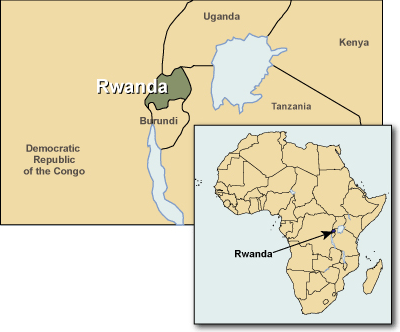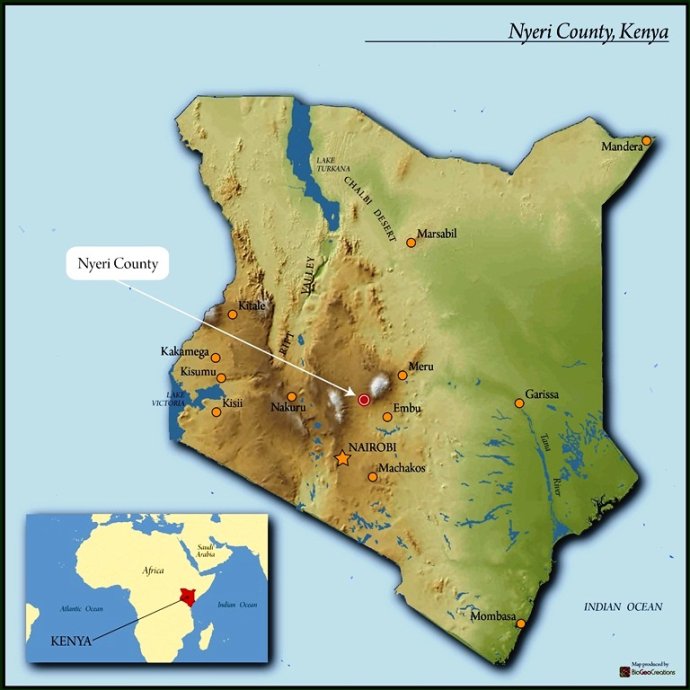World boutique Coffee Manor beans: Narinho Cafe de Narino, a coffee producing area in Colombia
Photo 1: roadside view of narino
Narino: geographical location
Narino, translated by the domestic coffee industry as "Na Linglong", is really very poetic and aesthetic, reminiscent of Xu Zhimo's "Emerald Cold".
Literal translation, Nalinho.
It is a province in southwestern Colombia, 640km from the capital Bogota. It is bordered by Ecuador to the south, Cauca province to the north, Huila province to the northeast, Putumoyo province to the southeast and the Pacific Ocean to the west.
Narino: the first certification for the protection of origin
I have already introduced the general situation of Colombian coffee. When it comes to Colombian coffee, I have to mention FNC, the Colombian Federation of Coffee producers, which has a long history and was founded in 1927. It is fully responsible for coffee-related matters, including coffee planting technology research, sales, marketing, quality standard construction, education and training for coffee farmers, etc., including the Juan Valdez marketing plan of that year. The program enabled Colombian coffee to successfully enter the American market and helped Colombian coffee become synonymous with quality.
In 1996, FNC set out to promote the cause of Specialty Coffee in Colombia and established a hierarchical system.
In 2011, Narino Province became the first producing area to be protected by Denomination of Origin certification.
Origin Status Denominator is common in the field of agricultural production, the quality of crops has an important relationship with the growing environment, some areas will have a natural advantage in the cultivation of certain crops, such as wine. However, it does not only include congenital factors such as microclimate, but also the historical and cultural background of the place of origin needs to be comprehensively considered. the quality is not only affected by the planting process, but also by post-harvest processing. The cultural and historical background will be reflected in this process.
Narino: coffee planting and processing
Narino has natural conditions for producing high-quality coffee: it is close to the equator, about 1 degree north latitude, and has plenty of light throughout the year; it is mostly above 1600m above sea level, and there are few peaks covered with snow all the year round. Steep mountains and long and steep slopes bring temperature diversity, warm and humid air rising from the canyon protects coffee grown at high altitude from the threat of frost, and coffee can be grown smoothly at an altitude of 2300m. Volcanic soil provides rich nutrients for the growth of coffee.
Narino has a peak distribution of rainfall throughout the year, with a rainy season that lasts from October of that year to May of the following year, and the dry season of June, July and August. However, even in dry months, coffee farmers do not have to worry too much that warm trade winds from the southern continent will produce water vapor when they meet on cooler nights, replenishing coffee trees.
Figure 2: Narino precipitation
Usually, after continuous drying followed by a rain, coffee trees usher in the flowering season. In Narino, after the first precipitation in September, the coffee flowering season is ushered in. Accordingly, the harvest season begins in April of the following year, and the harvest season in high-altitude producing areas may last until August.
Most of the Narino producing areas are small farmers. After the coffee is harvested, most of the coffee farmers will wash and process the coffee themselves. As long as the way is proper, the quality of coffee can still be guaranteed. Usually, the coffee is picked, processed by a manual peeling machine, fermented in a container for 12-18 hours, then cleaned and dried. The drying method is to put it on an arc viaduct bed to dry in the sun.
Narino is close to the equator and may encounter rain during the harvest season. Unlike other producing areas, Narino uses a curved cover with openings at the bottom of both ends to ensure air circulation. When a rainy day comes, the Radian is not only convenient for drainage but also avoids condensation of water droplets on the inner top of the cover.
Figure 3: high bed sun drying
Narino: quality performance is very NB
In 2010, the Columbia COE Competition was held in Narino. Narino won the top six, Top10 accounted for 8, and top21 accounted for 17. The high quality can be seen from this. Colombian Coffee has always been famous for its high-quality washed coffee, and narino has taken it to the next level on the basis of its existing quality.
Narino: coffee certified depression
Various certifications are popular in the field of boutique coffee, such as Fair Trade, but there are some exceptions in Narino.
There are about 30000 coffee farmers in the entire Narino producing area, but according to statistics from a fair trade promotion organization in 2012, there is only one Fairtrade certification body in the region, with fewer than 300 members. As a result, narino is honored to be selected as the organization's promotion pilot.
The reason for accepting the certification is to get a higher price, and narino coffee is not worried about the price.
First of all, the great FNC has a great promise to buy all the products of coffee farmers across the country at a reasonable price not lower than the market price. Then, thanks to the high quality, the price of narino coffee is better. Thirdly, the major customers of narino Coffee are Starbucks Coffee and Nesote Coffee, both of which have their own certification standards, which make the quality and price of narino coffee higher. So there is no shortage of money, certification naturally lack of market.
Source:
The blog of Mermaid Rock
Important Notice :
前街咖啡 FrontStreet Coffee has moved to new addredd:
FrontStreet Coffee Address: 315,Donghua East Road,GuangZhou
Tel:020 38364473
- Prev

World boutique coffee farm beans: the aroma of the wild grass of bourbon coffee washed in Rwanda
"Hotel Rwanda" (Hotel Rwanda) is a film co-shot by Britain, South Africa, Canada and Italy in 2004. The film, adapted from the True Story, is set against the backdrop of the 1994 Rwanda Holocaust and tells the story of how Paul Rusesabagina, a manager of a Rwandan Hutu hotel, managed to save 1268 Tutsi people from ethnic vendetta.
- Next

World boutique Coffee Manor beans: rich dry aroma of AA Nyeri Gatomboya in Kenya
Basic information of Kenya AA Nyeri Gatomboya raw beans: producer: farmers around Kato Boya processing Plant (Gatomboya Factory): Neri County, Central Province of Kenya (Nyeri County/Central Province/Kenya) altitude: 1750-1900m treatment: full washing, elevated sun-dried varieties: SL28,SL34,Ruiri 11 harvest: April-June, 1
Related
- Does Rose Summer choose Blue, Green or Red? Detailed explanation of Rose Summer Coffee plots and Classification in Panamanian Jade Manor
- What is the difference between the origin, producing area, processing plant, cooperative and manor of coffee beans?
- How fine does the espresso powder fit? how to grind the espresso?
- Sca coffee roasting degree color card coffee roasting degree 8 roasting color values what do you mean?
- The practice of lattes: how to make lattes at home
- Introduction to Indonesian Fine Coffee beans-- Java Coffee producing area of Indonesian Arabica Coffee
- How much will the flavor of light and medium roasted rose summer be expressed? What baking level is rose summer suitable for?
- Introduction to the characteristics of washing, sun-drying or wet-planing coffee commonly used in Mantenin, Indonesia
- Price characteristics of Arabica Coffee Bean Starbucks introduction to Manning Coffee Bean Taste producing area Variety Manor
- What is the authentic Yega flavor? What are the flavor characteristics of the really excellent Yejasuffi coffee beans?

